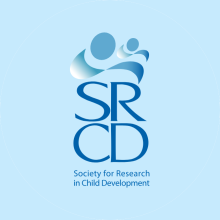December 2013 Spotlight on the SRCD Policy Fellow: Amanda Clincy, Ph.D
2013-2014 Federal Executive Branch Policy Fellow
As I reflect on the first year of my fellowship, I am amazed at the wealth of knowledge that I have gained through my placement in the Office of Planning, Research, and Evaluation (OPRE). As the research arm of the Administration for Children and Families (ACF), OPRE is primarily responsible for advising the Assistant Secretary on ways to increase the effectiveness and efficiency of programs aimed at improving the economic, social, and emotional well-being of children as well as their families. Working at OPRE alongside so many brilliant colleagues has allowed me to see first-hand how research, policy, and practice intersect.
During my second year, I continue to lead the Early Childhood Child Welfare Partnership, an interagency work group that seeks to enhance collaboration among child welfare and early childhood systems to support and amplify positive outcomes for children prenatally to eight years of age and their families. Over the past year, I have had the opportunity to work with individuals in various offices to think more critically about the intersection of child welfare and early care and education. Dissemination is a large piece of what we do. I have been able to expand my content knowledge around child welfare through developing briefs and tip sheets for various stakeholders (e.g., child welfare administrators, early education staff, and foster parents).
I have also continued to be involved in two large-scale descriptive studies of Head Start and Early Head Start, FACES and Baby FACES, respectively. Reviewing and providing feedback on various deliverables including reports, briefs, and data analysis plans is central to the progression of these projects. In addition, my primary task is to develop research to practice briefs and other products that are concise, digestible, timely, and relevant to various audiences. My work on these projects around quality, dosage, health, and family engagement has challenged me in many ways and has allowed me to refine my methodological, analytical, critical thinking, and translational skills.
This year, I have one new project in my portfolio on home visiting and father engagement. Along with the expansion of home visiting programs through the Maternal, Infant, and Early Childhood Home Visiting (MIECHV) program, supporting fathers in the desire to be actively and positively engaged in their children’s lives is a priority of the current Administration. Home visiting is a service delivery option that has the potential to engage a large number of fathers, but very little is known about how home visiting programs successfully engage fathers and fathers’ experience in these programs. This new, exploratory study attempts to fill this gap by collecting data from home visiting programs that are successfully engaging fathers as well as mothers. It is exciting to be involved in the early stages of a project that has important implications for how programs support the entire family and expand or enhance their services to include fathers.
I am very grateful for the opportunity to continue my fellowship for a second year. I am greatly appreciative of the incredible learning opportunity that the SRCD Policy Fellowship has provided. It has given me a platform to apply my training as a developmental psychologist to the very policy-relevant work that is being conducted on a federal level to improve early childhood systems nationwide.
